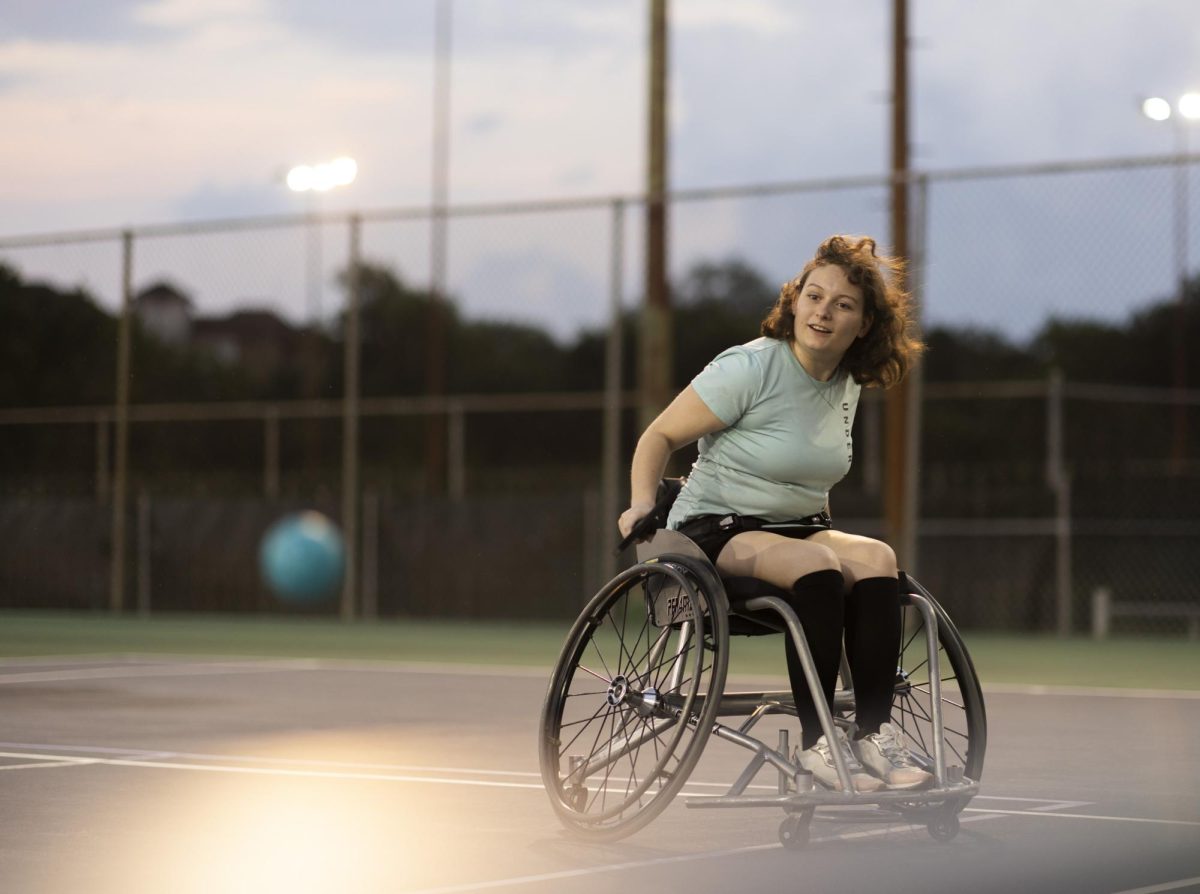The UT Disability Cultural Center held its first summer adapted tennis session on Monday at Charles Alan Wright Fields at the Berry M. Whitaker Sports Complex.
The annual sessions are hosted in partnership with Austin Adapted Sports, part of the Lone Star Paralysis Foundation, a non-profit researching spinal cord paralysis. The organization provided sports wheelchairs to any participant who wished to use one during the event. The summer sessions will take place every Monday at Wright-Whitaker Fields from 6:30 to 8:30 p.m. until August 12.
DCC director Emily Shryock, a wheelchair athlete herself, said access to sports wheelchairs makes tennis accessible to those who can’t afford the expensive equipment. She said everyone should have the opportunity to play, regardless of their abilities
“I play a variety of different sports (and) have had the opportunity to travel across the country, across the world,” Shryock said. “I’ve really seen the benefit and the opportunities that sports can provide. I really want to create those opportunities here at UT because I’ve personally experienced the impact that can have.”
Raymond Turner, director of adapted sports at the Lone Star Paralysis Foundation, said people with disabilities feel free when they play sports they thought they couldn’t participate in before.
“I fell in love with seeing people be able to do something that they didn’t think they could do,” Turner said. “To see somebody’s eyes get wide and say ‘Oh, I can get on the water again’ or ‘I can play tennis again,’ that’s a lot about what it is for me.”
Shryock said the sessions are open to both UT students and non-students, but all participants must RSVP with the DCC via email, she said. Turner said he encourages people to attend.
“Just come in, hop in a chair,” Turner said. “(The difference of playing in a sports wheelchair) is going to be like night and day. You’re going to want to come out here and enjoy doing something that you didn’t think you could do.”
Cooper Madison, a junior psychology major, said she came to the event because they lost the ability to play tennis and missed the sport. She said the sports wheelchair allows them to play without excessive pain or exhaustion.
“I appreciate (this event) a lot,” Madison said. “It’s helping me become a healthier person in general and be okay with myself and accepting my disability and who I am.”














